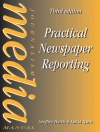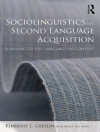This book honors the impactful contributions of Guadalupe Valdés toward equity in multilingual schools and communities. As one of the first language education scholars to examine the vibrant language practices of bilingual users in the US Southwest, her work marked a departure from traditional foreign language approaches and sparked a movement focused on valuing heritage languages and creating more equitable educational systems for young people from linguistically minoritized backgrounds. Influenced by the work of Professor Valdés, the contributors to this book draw on multiple aspects of her research to look at new ways of addressing equity and social justice for multilingual users in schools and communities. Chapters focus on three major areas of her work: the nature of languages and literacies in multilingual contexts, language development in classrooms and communities, and equity and access. At the end of each section, short interludes describe contributors’ personal experiences of learning from and with Professor Valdés, providing insight into the practices of mentorship and professional development within the field. This volume will appeal to students and researchers across bilingualism, applied linguistics and education, offering an overview of developments in these fields and directions for future research on equity in multilingual educational settings.
Table des matières
Contributors
Preface
Part 1: Conceptualizing the Nature of Language, Literacy and Bilingualism
Chapter 1. Aída Walqui: Guadalupe Valdés’s Ecological View of the Education of Latino Students
Chapter 2. Amanda K. Kibler: The Stories Behind Multilingual Writers’ Texts: Critical and Ecological Perspectives
Chapter 3. Jin Sook Lee and Hala Sun: Valorizing Heritage Language Speakers’ Multicompetence: Sociolinguistic Justice for a Korean American Ethnolect
Chapter 4. Claudia V. Angelelli: Bilingualism, Heritage Languages and Translation and Interpreting Studies: A Look Through Valdés’s Lenses
Chapter 5. Kellie Rolstad and Jeff Mac Swan: Bilingual Language Assessment: A Persistent Case of Bias
Chapter 6. Ofelia García and Kate Menken: Developing Language versus Teaching Language: Educating con Respeto y con Lupa
Chapter 7. Bryant Jensen: Interlude: ‘Come Monday Morning’: Practicality for Language Equity in Schools
Chapter 8. Martha Castellón Palacios: Interlude: A Mentor for Life
Part 2: Creating Affordances for Language and Learning in Classrooms and Communities
Chapter 9. George C. Bunch and Judit N. Moschkovich: ‘Developing Young Minds’: Guadalupe Valdés’s Contributions to Equitable Content-Area Instruction for Multilingual Learners
Chapter 10. Eduardo Muñoz-Muñoz, Ramón Martínez and Jonathan Rosa: Misma Dirección, Distinto Sentido: Reconceptualizing Problems and Possibilities in Educational Language Learning
Chapter 11. María Luisa Parra Velasco and Christian J. Faltis: Envisioning an Inclusive, Equitable and Just Language Education for Latinx Youth: Guadalupe Valdés’s Contributions to Spanish Teaching and Research
Chapter 12. Melinda Martin-Beltrán: Critically Questioning and Reconceptualizing Peer Interaction in Dual Language Bilingual Education
Chapter 13. Sarah Capitelli and Laura Alvarez: Beyond the Bits and Pieces: Working with Novice Teachers to Reconceptualize Language in Practice
Chapter 14. Claudia Rodriguez-Mojica and Sara Rutherford-Quach: Curricularizing Language: Examining Underlying Assumptions in Classroom Practice
Chapter 15. Sarah Gallo: Transborder Parent Engagement Con Respeto
Chapter 16. Anita Hernández: Interlude: A Personal Reflection on Guadalupe Valdés
Chapter 17. Lucinda Pease-Alvarez: Interlude: A Teacher Educator’s Reflections on the Contributions of Guadalupe Valdés
Chapter 18. Susan Baker and Elsa Billings: Interlude: An Expression of Gratitude and Affection
Part 3: Educational Access, Equity and Justice
Chapter 19. John Baugh and Ana Celia Zentella: E Pluribus Unum: Black and Brown Linguistic Liberation in US Schools and Society
Chapter 20. Terrence G. Wiley: Heritage and Community Languages and Education: Revisiting Valdés’s Cautionary Concerns
Chapter 21. Luis E. Poza and Maneka D. Brooks: ‘A Special Case of Bias’: Racialized Bilinguals, Testing and the Allocation of Opportunity
Chapter 22. Karen D. Thompson: Revisiting Whether Separate is Always Unequal: Reconsidering Education Policy for Multilingual Students
Chapter 23. Deborah K. Palmer, Claudia G. Cervantes-Soon and Juan A. Freire: When You Let White Kids in the Door: Unpacking Whiteness and Integration in Dual-Language Bilingual Education
Chapter 24. Lily Wong Fillmore: From Research to Practice: Guadalupe Valdés’s Work on Strengthening Communities with Language
Chapter 25. Greses Pérez, Karla Lomelí, Alexander Mejia and Courtney Peña: Interlude: Abriendo Puertas: Lessons from la Gran Maestra
Chapter 26. Kenji Hakuta: Interlude: In the Shadow of the Curriculum Vita: Reflections on the Impact of Guadalupe Valdés on the Education Environment
Guadalupe Valdés: Concluding Thoughts
Index
A propos de l’auteur
Christian Faltis, a California native schooled in Mexico, is a bilingual education professor, an AERA Fellow, and an AERA Distinguished Scholar. Christian is also an artist, whose oil paintings seek to address social inequities and visceral realities located in the bodies of marginalized people, with a focus on Mexican immigrants.












